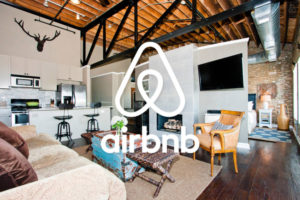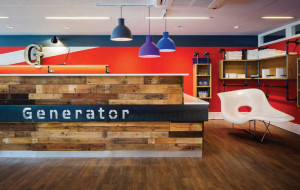Why the sudden rise of the unhotel?
If there’s one thing we gathered from the recent Phocuswright Conference in Fort Lauderdale, it’s that “alternative” accommodation, everything from apartment shares and house boats to castles and villas, isn’t going away. We’d go as far as saying it’s not even that alternative any more, with thousands of people choosing Airbnb and homestays over more traditional forms of accommodation every day. Why the sudden rise of the “unhotel” and what does this mean for hotels? Here are our two cents…
Influence of Airbnb
The name on everyone’s lips this Phocuswright Conference was Airbnb. The accommodation giant has drastically changed the travel landscape, putting an emphasis on personalisation and hospitality like no other major brand. As Craig Keever, CEO of Virgin Atlantic, stated, “Innovation is not always about technology – it comes from considering the human experience”, something that is at the heart and soul of everything Airbnb does.
Gone are the days when Airbnb was exclusively the choice of hipster millennials – recent Phocuswright research shows that Airbnb users are of all demographics, with 95% considering a wide variety of accommodation options before renting. And with Airbnbers booking longer stays over time, the growth in private accommodation is only set to continue. Individuals now have the control to determine their own travel experience from start to finish – what Airbnb’s Head of Global Hospitality Chip Conley calls the “democratisation of hospitality”.
What do “unhotels” offer?
So why the sudden rise in “unhotels”? What void are they filling? The simple answer is personalisation. Nowadays travellers are looking for something more from their accommodation – an experience rather than just a place to lay their head. Airbnb and other “alternative” accommodation models allow holiday-makers and business travellers to live like a local, soak up the culture of their destination and interact with natives. As Marcello Gasdia, Director of Consumer Research at Phocuswright, summarised, “it’s a community, not just a transaction”. It’s no wonder that one of the top reasons people choose Airbnb is for that “home-like feeling” not found in most hotels.
Emphasis on design and style
We very much live in an image-centred era, when people are as likely to check their Instagram feed as the latest news headlines, and this needs to be reflected in the hospitality industry. Josh Wyatt, Chief Strategic Officer at Generator Hostels, aligned his company’s success with their emphasis on art, culture and design at an affordable price. “We think that people want to be the author of their own experience”, he acknowledged. Generator’s ability to infuse experience and technology in their accommodation is what makes them stand out from the crowd in 10 cities around the globe.
The future of hotels
So what does this mean for hotels? Are they in trouble? Thankfully, as Marcello Gasdia noted, hotels are also recording the strongest years in history. However, to make a name for themselves in the ever evolving accommodation realm, hoteliers need to step up their game and take notes from the design-conscious, technologically-advanced Airbnbs and Generators of the world. This was a key point of Revinate’s Josh Steinitz’s Phocuswright presentation – in order to succeed hotels need to maximise their guest database and offer a more personalised experience. Old-school mints on the pillow and champagne on arrival really isn’t going to cut it anymore.
Innovation and fearlessness will drive both traditional accommodation and “alternative” accommodation leaders to success, without hurting one another. There really is no reason why we can’t all live in harmony in the travel industry!
“Service before scale, brand before price” was a key argument at the Phocuswright Conference in Fort Lauderdale. What do you think? Tweet us @TravelMedia_ie with your opinions!

